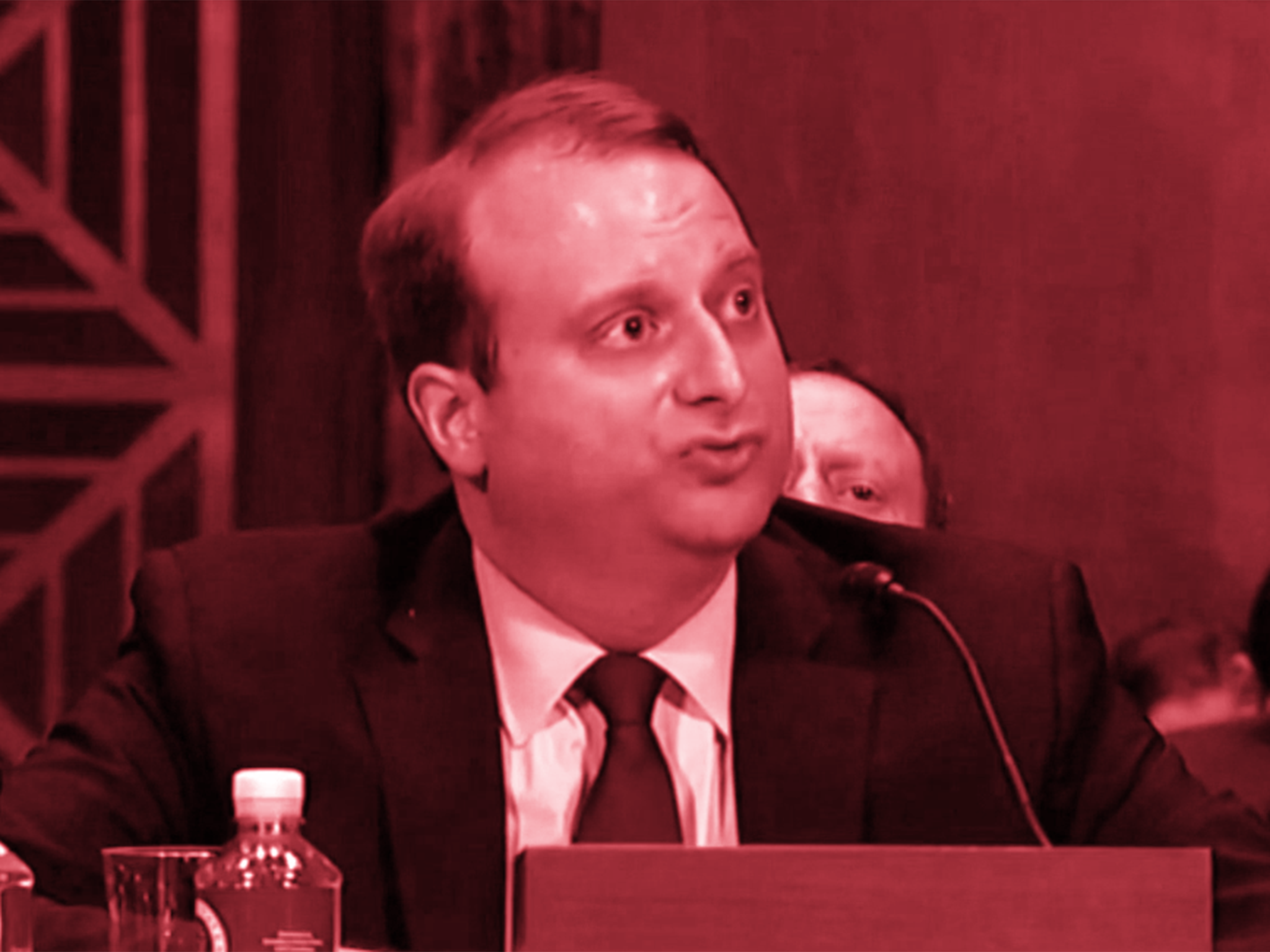Why is Trump’s nomination of Steven Menashi to one of the most powerful courts in the US so ‘outrageous’?

Steven Menashi, the associate White House counsel and special assistant to the president, has just been confirmed by the senate for a lifetime role as a judge on one of the most powerful courts in the US.
While all Republicans who were there supported Mr Menashi apart from Senator Susan Collins, all Democrats were against his confirmation on the Second Circuit Court of Appeals.
The 40-year-old, who was nominated to the role by US president Donald Trump in August, will be taking up a judicial seat once held by Thurgood Marshall, a civil rights leader who was the first African-American justice to join the US Supreme Court.
What is his background?
Campaigners argue the judge has pushed bigoted and racist immigration policies espoused by the Trump White House.
Mr Menashi, who holds no previous experienced as a judge, has a highly controversial track record and has faced fierce criticism for his time working with Education Secretary Betsy DeVos as a legal adviser.
The New-York born judge supported Ms DeVos in rolling back a slew of Obama-era protections for LGBT+ students while working in the department of education.
Significant adjustments were made to Title IX – a federal civil rights law which bars discrimination based on sex in schools that get federal money – by Ms DeVos while Mr Menashi worked at the department.
This overhaul included a suggested measure which would permit universities to shelve many sexual harassment complaints.
Mr Menashi also lent his backing to workplaces being able to enforce their own religious views on staff and bans on them from having birth control covered by the Affordable Care Act.
The judge has been roundly criticised for dozens of blog posts and editorials penned in the late 1990s and early 2000s which contain provocative remarks about women, Muslims, ethnic minorities and the LGBT+ community.
He once branded Roe v Wade – the landmark Supreme Court decision that legalised abortion nationwide in 1973 – an example of “radical abortion rights.”
The verdict codified “abortion on demand, for any reason, at any stage of pregnancy”, he wrote.
Why is he such a controversial Trump pick?
Mr Menashi is regarded as one of the most controversial judicial nominees which Mr Trump has selected.
He worked with Stephen Miller, a highly controversial White House aide, to shape the Trump-Pence administration’s immigration policies.
In the lead-up to the 2016 election, Mr Miller, the most influential adviser carving out immigration policies, sought to propagate white nationalism, far-right extremist ideas and anti-immigrant discourse via far right news site Breitbart, according to a recent report by the Southern Poverty Law Centre (SPLC).
Mr Menashi has previously argued countries are weakened by ethnic diversity – claiming “ethnic ties provide the groundwork for social trust” and “solidarity underlying democratic polities rests in large part on ethnic identification” in an academic journal back in 2010.
The judge formulated an illegal program “to use private Social Security data to deny debt relief to thousands of students cheated by their for-profit colleges”, according to the New York Times.
How much power could he exert in his position?
The confirmation of Mr Menashi has overhauled the Second Circuit Court of Appeals so Republican appointees now make up the majority. Five Trump appointees now sit on the court.
This constitutes a radical change in the power equilibrium which could potentially enable Mr Trump to protect himself from criminal accountability in New York.
What are campaigners saying about his confirmation?
Campaigners have raised concerns about the appointment of Mr Menashi – with Planned Parenthood, the Council on American-Islamic Relations and Alliance for Justice all saying they are in opposition to the lifetime appointment.
Anna Chu, of the National Women’s Law Centre, said: “Shame on those in congress who pushed this outrageous vote through. Menashi’s record of undermining the fundamental rights of women and communities of colour could now shape laws for decades to come.
“There’s no way that students, survivors, or anyone impacted by discrimination can trust that they would have a fair hearing in his court. We will continue to fight Trump’s persistent littering of the courts with extremist, bigoted judges. People across the country deserve better.”
Over 100 demonstrators assembled outside Mr Menashi’s hearing last month and at least ten individuals were arrested.
“Steven Menashi has supported policies that are overwhelmingly racist, sexist, homophobic, and Islamophobic,” Alexis McGill Johnson, of the Planned Parenthood Federation of America, said ahead of the confirmation.
“Access to sexual and reproductive health care is on the line. People of colour, the LGBT+ community, women, and Muslims need someone who will protect their constitutional rights – not someone who has spent his career working against them”.
Subscribe to Independent Premium to bookmark this article
Want to bookmark your favourite articles and stories to read or reference later? Start your Independent Premium subscription today.

Join our commenting forum
Join thought-provoking conversations, follow other Independent readers and see their replies